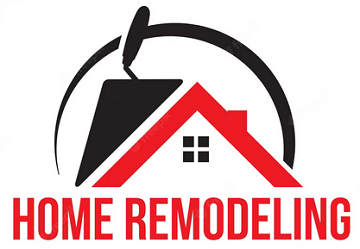Investing in real estate can be a highly profitable way to build long-term wealth. However, securing financing is often the biggest challenge. Traditional mortgages are primarily designed for homebuyers, requiring proof of personal income, W-2s, and tax returns. For investors, especially those who are self-employed or reinvesting profits, these requirements can create significant barriers.
DSCR loans offer a modern solution by focusing on the property’s income rather than the borrower’s personal finances. This approach allows investors to grow rental portfolios efficiently and access financing that fits their investment strategy.
Understanding DSCR Loans
DSCR stands for Debt Service Coverage Ratio, a metric used to evaluate whether a property generates enough income to cover its debt obligations.
DSCR Formula:
Net Operating Income ÷ Total Debt Payments
Example:
- Monthly rental income: $8,000
- Monthly mortgage: $6,000
- DSCR = 1.33
Lenders typically require a DSCR loan of 1.20 or higher, meaning the property earns at least 20% more than its debt obligations. A higher DSCR reduces lender risk and improves approval chances.
How DSCR Loans Differ from Conventional Mortgages
Unlike traditional mortgages that heavily weigh the borrower’s personal income and credit history, DSCR loans focus on the property’s income. Lenders assess:
- Verified rental income or market rent projections
- Minimum DSCR (usually 1.20–1.40)
- Credit score (secondary factor)
- Down payment, typically 20–25%
This property-focused approach allows investors to qualify for financing based on the property’s performance rather than their personal earnings.
Benefits of DSCR Loans
1. No Personal Income Verification
Borrowers are not required to provide W-2s or tax returns.
2. Faster Approvals
With minimal documentation, DSCR loans close faster than traditional mortgages.
3. Portfolio Scalability
Each property is evaluated individually, allowing investors to acquire multiple properties without being limited by personal income.
4. Flexible Loan Structures
Investors can choose fixed-rate, adjustable-rate, or interest-only loans to optimize cash flow.
5. Ideal for Self-Employed Borrowers
Entrepreneurs, freelancers, and business owners benefit because DSCR loans focus on property income, not personal financial history.
Potential Drawbacks
While DSCR loans offer flexibility, investors should consider:
- Slightly Higher Interest Rates: Typically 1–2% above conventional mortgages.
- Larger Down Payments: Often 20–25% of the property’s value.
- Dependence on Property Income: Loan approval requires the property to generate sufficient cash flow.
Despite these considerations, DSCR loans provide opportunities and scalability that traditional mortgages cannot.
Who Should Consider DSCR Loans?
- Buy-and-Hold Investors: Building long-term rental income.
- Short-Term Rental Owners: Airbnb or vacation property investors.
- Self-Employed Professionals: Those with irregular income streams.
- Portfolio Investors: Financing multiple properties simultaneously.
Real-World Example
An investor purchases a four-unit property for $750,000:
- Monthly rental income: $10,500
- Monthly mortgage: $7,500
- DSCR = $10,500 ÷ $7,500 = 1.4
Since the DSCR exceeds the lender’s minimum threshold, the property qualifies—even if the borrower’s personal income is minimal.
Tips to Maximize DSCR Loan Approval
- Select High-Cash-Flow Properties – Properties with strong rental demand improve DSCR.
- Provide Detailed Rental Documentation – Leases, rent rolls, and property management statements strengthen applications.
- Maintain Good Credit – Lenders consider credit scores when determining interest rates.
- Prepare Reserves – Proof of 3–6 months of mortgage payments may be required.
- Shop Multiple Lenders – Terms and DSCR requirements vary; comparison is key.
DSR Loans vs. Other Financing Options
- Conventional Mortgages: Income-dependent, limited portfolio growth.
- Hard Money Loans: Quick but short-term and expensive.
- Private Financing: Flexible but terms can vary.
- DSCR Loans: Long-term, property-focused, and ideal for scaling rental portfolios.
DSCR loans offer a balanced combination of accessibility, cost, and flexibility, making them perfect for buy-and-hold investors.
Why DSCR Loans Are Gaining Popularity
With more investors seeking financial independence and self-employment on the rise, traditional income-based mortgages often fail to meet modern investor needs. DSCR loans align with cash-flow-driven investment strategies, making them increasingly popular among investors who want to scale efficiently.
Final Thoughts
DSCR loans provide a property-focused financing solution that removes many barriers posed by traditional mortgages. By emphasizing property income over personal income, these loans allow faster approvals, scalable growth, and greater flexibility.
While they may require higher down payments and slightly higher interest rates, DSCR loans remain an essential tool for serious investors. They open doors that conventional financing often cannot, making them a strategic choice for anyone building wealth through rental income.











+ There are no comments
Add yours